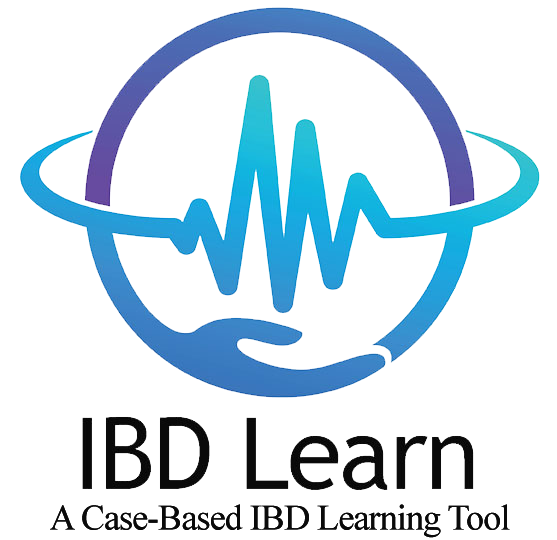Case 16
Submitted by Michael Kattah, MD PHD, Sofia Verstraete MD, Susan Prescott Thompson NP MSN, Laura Cooke NP MSN
A 21-year-old woman presents to pediatric IBD clinic to establish care. Her history includes a diagnosis of Crohn’s Disease at 5 years of age after colonoscopy revealed pancolitis. Histology showed granulomata in the stomach, ileum, and colon, as well as chronic pancolitis. She achieved remission with 2 mg/kg of prednisone and maintained remission for 14 years on azathioprine monotherapy dosed at 2.5-3 mg/kg. Prednisone was used for a flare only once during that time.
At 14 years of age, she developed diarrhea, hematochezia, and a small perianal abscess. Repeat EGD and Colonoscopy revealed gastric erythema and inflammation as well as pancolitis with aphthous ulcers throughout. MRE demonstrated bowel wall thickening from the transverse colon to the rectum and a small perianal abscess. Her abscess was managed with antibiotics, and she started Infliximab, but she was ultimately deemed an anti-TNF non-responder given ongoing symptoms despite escalation to 10 mg/kg Infliximab every 4 weeks.
At 20 years of age, she was started on Ustekinumab with a weight based IV loading dose and she is currently in symptomatic remission with normal inflammatory markers on Ustekinumab 90 mg SQ every 4 weeks.
This patient is considering transferring her care to an adult provider within the next year.
2. Follow-up regarding the success of transition and establish QI efforts.
3. Select the appropriate adult IBD provider.
4. See the young adult patient with and without caregivers. Promote self-advocacy and self-management. Formulate a written transition and transfer plan.
5. Assess readiness and transition skills (knowledge of medical condition, treatment adherence, mental health, communicating with healthcare providers, and support network).
6. Arrange a shared clinic visit with the adult provider and share detailed medical records and a transfer summary
